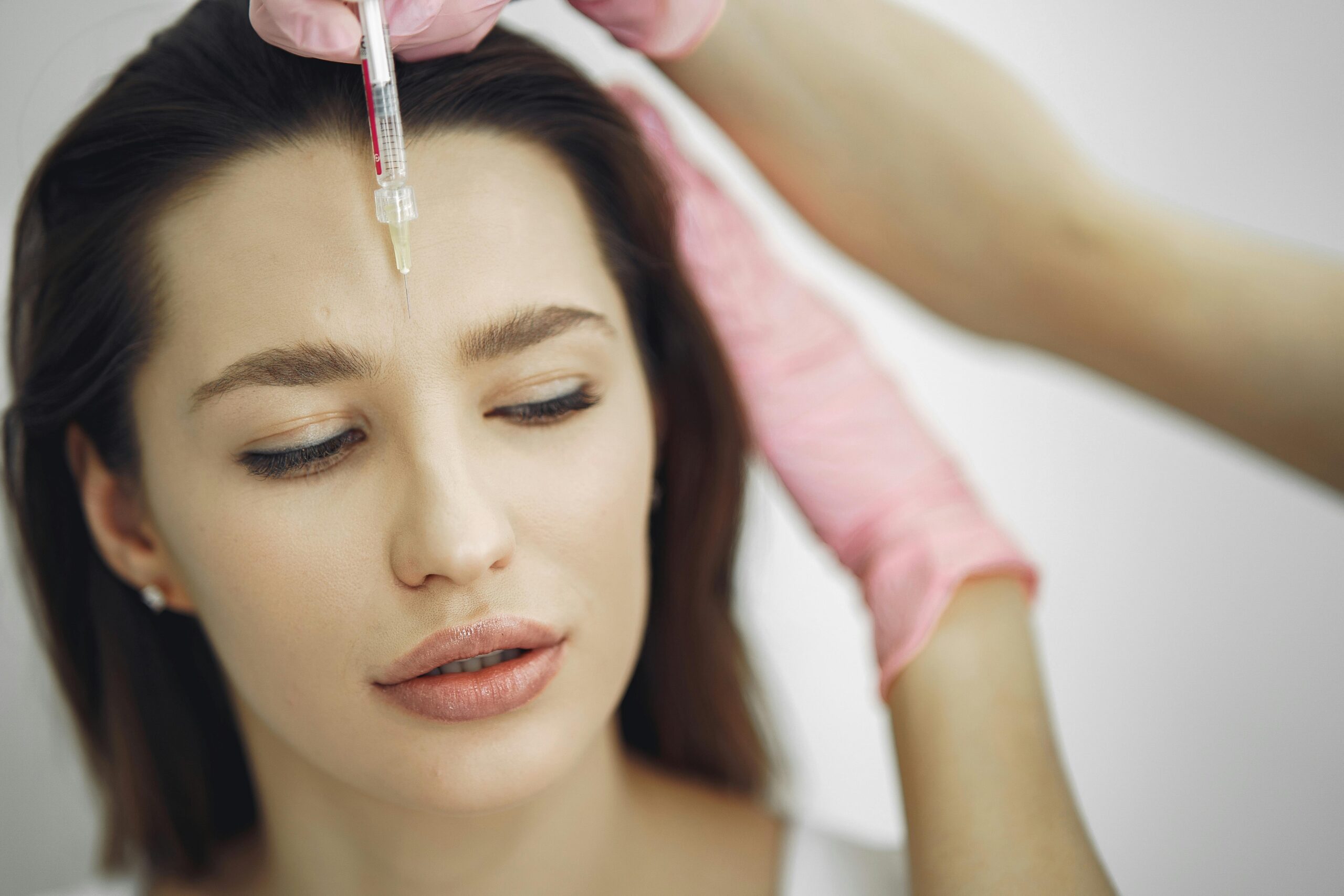
BOTOX® has a variety of cosmetic and medical uses for the face, where it is applied to underlying muscles to smooth the appearance of wrinkles and fine lines.
For more information about what areas BOTOX can treat, schedule an appointment with our Physician Assistant, Danny Jones, today.
BOTOX® can treat the following facial lines and wrinkles:
While many of our patients approach us because they already experience these issues, typically in their 30s and 40s, we recommend BOTOX as a preventative treatment to stop these issues from appearing, for our patients in their late 20s. Speak to our aesthetician to discover how BOTOX can treat these areas for you.
One of the most popular applications for BOTOX® is to treat forehead lines, also known as frown lines. Excessive lines on your face can give you an aged appearance, and many of our patients wish to reverse this noticeable sign of aging, which can also be caused by genetics and smoking. BOTOX, when applied by an expert injector, can help fade away these lines and make you look younger, with very natural-looking results.
BOTOX is very popular in treating glabellar lines, also known as the “11”s that appear in between the eyebrows and give you a tired or angry look. Smoothing this area of the face can give you a more relaxed and youthful look. When these lines are very deep-set, we may also recommend a dermal filler to simultaneously fill and smooth this area.
Bunny lines on the nose appear when we sniff or squint, which causes the nose to wrinkle. An experienced injector can apply BOTOX carefully to lessen these wrinkles without affecting your smile.
Crow’s feet, which appear around the eyes as you smile, are another area BOTOX can treat. Our team can help you smooth and relax the appearance of crow’s feet and other wrinkles around the delicate eye area to help you look more rejuvenated, refreshed, and alert.
Smoker’s lines, also known as lipstick lines or barcode lines, are another cause of concern for patients in their late 20s, 30s, and 40s who are noticing the signs of aging. While BOTOX® can be a suitable treatment on its own for this region, our medical team may recommend dermal fillers in conjunction with, or instead of, BOTOX to get a uniformly smooth effect.
Nasolabial folds, also known as smile lines, laugh lines, or parentheses, are the creases that extend from your nose to the corners of your mouth and become more prominent with age. BOTOX is ideal for fading these creases, as they are caused by underlying muscular movement.
Similarly, marionette lines, which extend vertically from your lower lip to your chin, also increase in prominence with age and are a popular treatment area for BOTOX, as they are caused by underlying muscle movement.
Chin dimpling is caused by overactivity of the mentalis muscle, which makes the chin flex more than it should and creates a dimpled appearance. Chin dimpling is most commonly caused by age, but other issues, including receding gums, sun exposure, and bone loss can also cause it. BOTOX can relax the mentalis muscle to stop the effect of chin dimpling.
Our office offers BOTOX® treatment for crow’s feet, bunny lines, chin dimpling, marionette lines, forehead lines, glabellar lines, nasolabial folds, and smoker’s lines, among other target areas.
To find out more about the areas that BOTOX and other non-surgical procedures can treat, call our office and schedule an appointment. We would be delighted to help you discover how BOTOX can be right for you.
ZO®️ Skin Health is a line of award-winning, medical-grade skincare products that provide comprehensive solutions for diverse skin concerns. From reversing sun damage to restoring a youthful, luminous glow, ZO®️ Skin Health’s cutting-edge formulas can keep your skin at its healthiest. Our aestheticians will create a custom skin care regimen tailored to your unique needs and goals through the link below.
Learn More